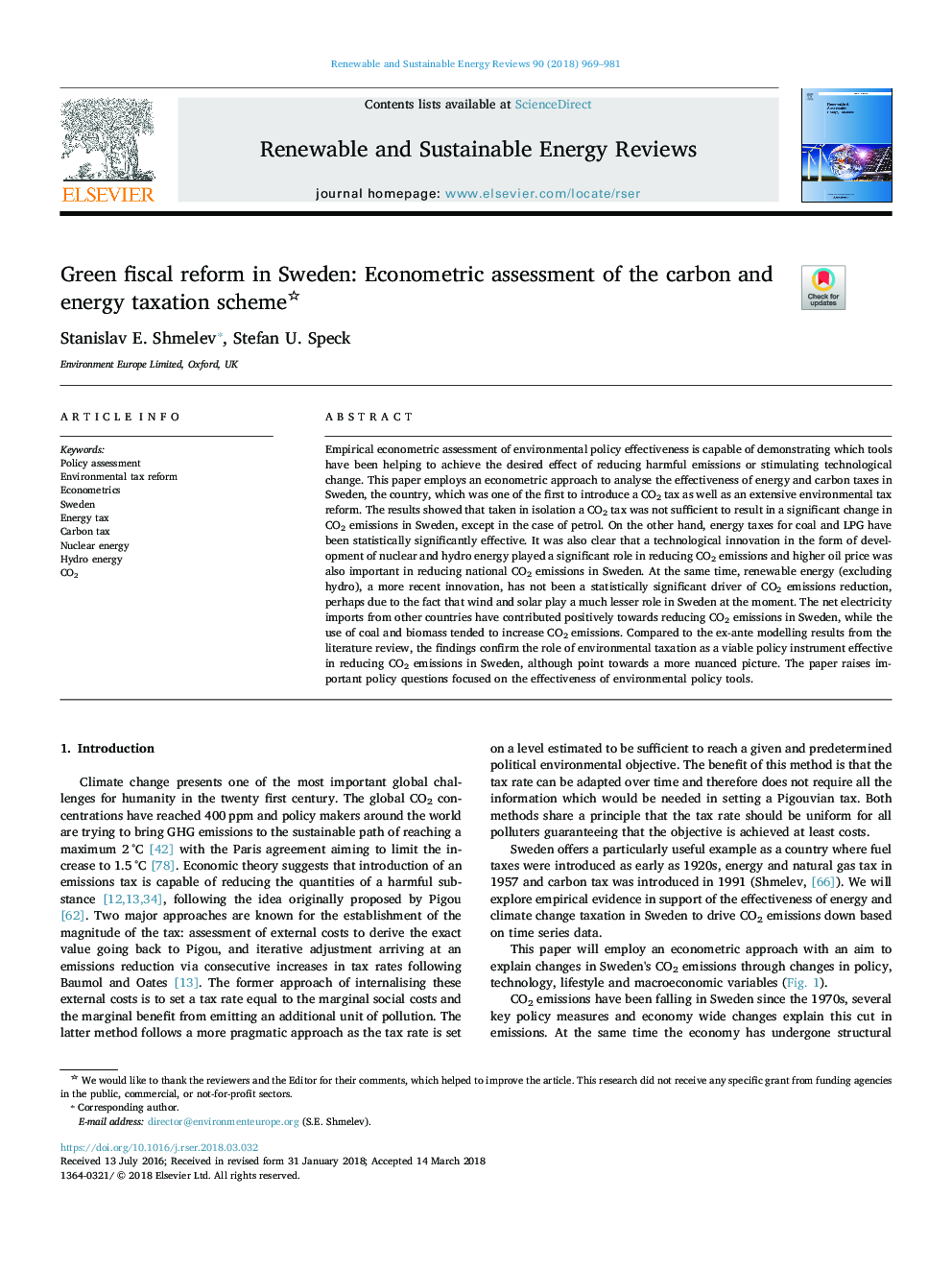| Article ID | Journal | Published Year | Pages | File Type |
|---|---|---|---|---|
| 8111470 | Renewable and Sustainable Energy Reviews | 2018 | 13 Pages |
Abstract
Empirical econometric assessment of environmental policy effectiveness is capable of demonstrating which tools have been helping to achieve the desired effect of reducing harmful emissions or stimulating technological change. This paper employs an econometric approach to analyse the effectiveness of energy and carbon taxes in Sweden, the country, which was one of the first to introduce a CO2 tax as well as an extensive environmental tax reform. The results showed that taken in isolation a CO2 tax was not sufficient to result in a significant change in CO2 emissions in Sweden, except in the case of petrol. On the other hand, energy taxes for coal and LPG have been statistically significantly effective. It was also clear that a technological innovation in the form of development of nuclear and hydro energy played a significant role in reducing CO2 emissions and higher oil price was also important in reducing national CO2 emissions in Sweden. At the same time, renewable energy (excluding hydro), a more recent innovation, has not been a statistically significant driver of CO2 emissions reduction, perhaps due to the fact that wind and solar play a much lesser role in Sweden at the moment. The net electricity imports from other countries have contributed positively towards reducing CO2 emissions in Sweden, while the use of coal and biomass tended to increase CO2 emissions. Compared to the ex-ante modelling results from the literature review, the findings confirm the role of environmental taxation as a viable policy instrument effective in reducing CO2 emissions in Sweden, although point towards a more nuanced picture. The paper raises important policy questions focused on the effectiveness of environmental policy tools.
Keywords
Related Topics
Physical Sciences and Engineering
Energy
Renewable Energy, Sustainability and the Environment
Authors
Stanislav E. Shmelev, Stefan U. Speck,
